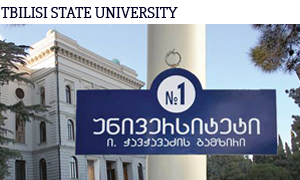
Journal Number: 0
The TSU Faculty of Law continuously analyses global theoretical and practical issues, to adapt and apply these analyses to the Georgian economic and legal context. Several research institutes within the faculty collaborate in these efforts, targeting specific legal issues. One that stands out through its research is the Institute of Corporate, Bank and Economic Law, which has recently begun a new study entitled “A General Analysis of Corporate Governance’’ led by Assistant Professor at the TSU Faculty of Law, Dr. Giorgi Makharoblishvili. The research examines the fundamentals of corporate law and issues of corporate governance. This project was conceived in 2012 when it became obvious that there was a lack of relevant Georgian legal literature. In addition to this, an analysis is essential since corporate governance is highly complex and multidimensional, and of crucial academic significance. Research results have already shown the value of this work and are making a modest contribution to Georgian legal knowledge.
The High Energy Physics Institute, founded on June 9, 1980, was built on the successes of the High Energy Nuclear Physics Problem Laboratory, which was a part of Tbilisi State University. The founders were Academicians Nodar Amaglobeli, Albert Tavkhelidze, Teimuraz Kopaleishvili and Revaz Salukvadze. The new Institute was created as an entity with its own budget, to encourage theoretical and experimental research in the fields of elementary particles, relativistic nuclear physics, and quantum field theory. The Institute’s first Director was Nodar Amaglobeli who led the Institute for 16 years. The following Director was the former President of the Georgian National Academy of Sciences, Albert Tavkhelidze. Professor Mikheil Nioradze, Doctor in Physics and Mathematical Sciences, was named Director in 2004.
Many problems illustrate the fragility of Georgia’s food security food dependency and the lack of self-sufficiency. The principle issues include weak institutional and legal frameworks regulating food ; no national strategy on food safety and quality; ineffective monitoring services; the diminishing share of agriculture within the total GDP stemming from decreasing agricultural production; low awareness by consumers on food security issues; lack of skilled staff; and the lack of risk management in the food chain. These conclusions were made by TSU Professor Eka Lekashvili according to the results of her research “Concerning the Issue of a Food Security Strategy.” The goal of the research was to identify problematic sectors and identify solutions. The research was conducted in 2011-2012 and results submitted within local and international conferences.
A study on viticulture, wine making and diversification opportunities in Georgia started in 2011, to identify the challenges to farming and viticulture and prospects for diversification. Farming has an important role in the economic structure of the EU countries and it is vital to develop models for Georgia that comply with European requirements and with worldwide experience. The research team studied European experiences and models in winemaking and viticulture and developed recommendations for adapting diversification models according to Georgian reality.







